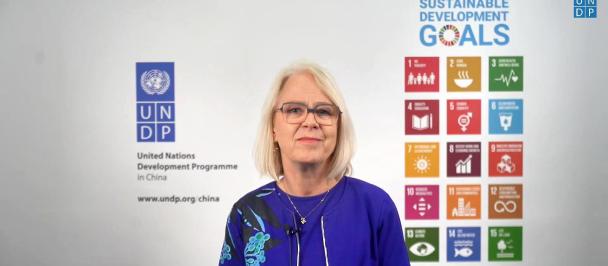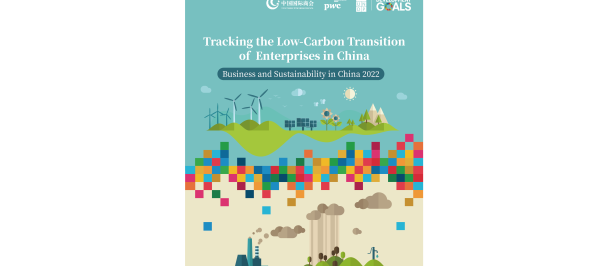Remarks by Mr. James George at the Climate Change and Low Carbon Development Forum 2022
November 7, 2022
Distinguished guests,
Ladies and gentlemen,
On behalf of the United Nations Development Programme, it is my great pleasure to welcome you to the pre-launch event of our new report, Tracking the Low-Carbon Transition of Enterprises in China.
When the 2030 Agenda for Sustainable Development was launched in 2015, it was envisioned as a roadmap to address humanity’s collective development challenges and ensure a sustainable world for generations to come.
The 17 Sustainable Development Goals (SDGs) were adopted by all UN member states - global goals to safeguard the future of both people and planet.
However, with now just 8 years remaining before 2030, the world is in crisis.
The combination of the COVID-19 pandemic, global conflicts, food and energy shortages, runaway climate change, and unprecedented biodiversity loss - has reversed years of hard earned development progress.
We are on track to exceed the 1.5 degrees Celsius Paris Agreement target by nearly double-which would leave much of our planet uninhabitable.
The time for talk and half measures has long since passed.
We must urgently chart a new course forward, one that is more sustainable, inclusive, and green, before it is too late – but in order to do this, we need transformative actions from the private sector.
This is why, over the last three years, our annual report series, Business and Sustainability in China, has looked at the contributions that enterprises in China are making towards advancing the SDGs.
This year’s edition focuses in particular on the low-carbon transition and the steps that companies are taking to lower their emissions.
By highlighting what measures are already being implemented, and sharing the experiences and lessons learned across various sectors and industries, the findings of the report provide important insights into what areas show progress, what challenges must be overcome, and where more attention must be paid for companies to successfully decarbonize.
For example, while a majority (61%) of surveyed enterprises have included the topic of low-carbon transition in their board discussions, only 30.3% have actually set clear carbon targets, indicating a continuing gap between ambition and concrete action.
Also included in the report this year, is a special section specifically on women’s participation in enterprises’ low-carbon transitions.
Research has shown that there is often an inverse correlation between the number of female managers within an enterprise and its amount of carbon emissions.
Despite this, our report’s findings indicate that SDG 5: gender equality is near the bottom in the ranking of SDGs that enterprises prioritize most, and there is a lack of initiatives from enterprises’ executive levels that encourage female employees to participate in a low-carbon transition.
This has to change.
The involvement of women is critical to ensure a low-carbon transition that is not just inclusive, but also as effective as possible. In the fight against climate change, we need to leverage all the capacities and knowledge available to us.
We cannot afford to exclude anyone’s potential to contribute due to their gender.
The time for talk and half measures has long since passed. We must urgently chart a new course forward, one that is more sustainable, inclusive, and green, before it is too late – but in order to do this, we need transformative actions from the private sector.James George, UNDP China Deputy Resident Representative
Moving forward, it is my hope that this report can serve as a go-to resource for enterprises, to help catalyse their low-carbon and SDG-oriented actions, as well as for policymakers to help support them.
There must be a fundamental shift in how companies conduct business towards alignment with the SDGs.
One-off activities or social responsibility initiatives on the margins of an enterprise’s core business strategy are not enough.
Indeed, it is estimated that by 2030, SDG-generated economic growth could reach US$12 trillion, or 10% of the current global GDP, so it simply makes business sense.
The SDGs should be seen as fundamental drivers of business growth, not hindrances, and UNDP stands ready to continue working with the private sector in China to make this happen alongside other stakeholders in government, academia and think-tanks.
In closing, let me thank our partners PwC and the China Chamber of International Commerce (CCOIC) for their collaboration and partnership in producing this important annual study.
I look forward to the report’s full release in the coming months and continuing our cooperation in producing this important annual study in the years ahead.
With enterprises playing a leading role, we can redefine the meaning of “business-as-usual” and put the SDGs back on track.
Now is the time to act.
Thank you!

 Locations
Locations
